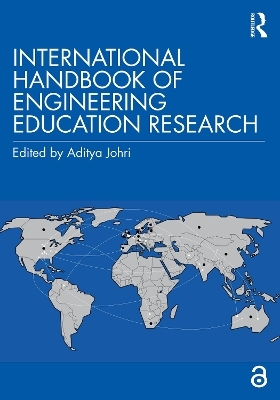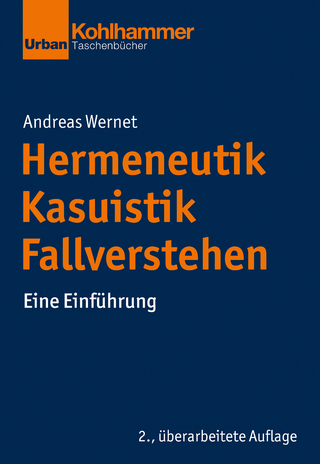
International Handbook of Engineering Education Research
Routledge (Verlag)
978-1-032-26275-8 (ISBN)
Winner of the 2024 American Educational Research Association (AERA) Division I Outstanding Research Publication Award
This comprehensive handbook offers a broad overview of contemporary research on engineering education and its practical application. Over the past two decades, the field of engineering education research (EER) has become a vibrant and impactful community with new journals, conferences, and doctoral and research programs established across the globe. The increased interest in this area has helped improve the education and training of the next generation of engineers, as well as supporting growth in the use of technology for teaching and learning, increased attention to broadening participation, diversity and inclusion in the field, and a wide international expansion of the field.
Drawing on the work of 100 expert contributors from over 20 countries, this volume covers both emergent and established areas of research within engineering education, giving voice to newcomers to the field as well as perspectives from established experts. Contents include:
Sociocognitive and affective perspectives on engineering education.
Technology and online learning in engineering education.
Cultural and ethical issues including diversity, equity, and inclusion in engineering education.
Curriculum design, teaching practices, and teacher education at all levels.
Research methods and assessment in engineering education.
This book offers an innovative and in-depth overview of engineering education scholarship and practice, which will be of use to researchers in engineering education, engineering educators and faculty, teacher educators in engineering education or STEM education, and other engineering and STEM-related professional organizations.
The Open Access version of this book, available at http://www.taylorfrancis.com, has been made available under a Creative Commons Attribution-Non Commercial-No Derivatives (CC-BY-NC-ND) 4.0 license.
Aditya Johri is Professor of information sciences and technology (IST) in the College of Engineering and Computing (CEC) at George Mason University, USA.
1. Introduction to the International Handbook of Engineering Education Research Part 1: Comparative Perspectives for Engineering Education Research 2. The Historically Global Forming of Engineering Education 3. Gaps, Resources, and Potentials for Growth in Comparative Engineering Education Research 4. Decolonization in Engineering Education 5. Developing a Global and Culturally Inclusive Vision of Engineering Ethics Education and Research 6. Disrupting Engineering Education Part 2: Theoretical Orientations and Critical Approaches in Engineering Education Research 7. The Role and Use of Theory in Engineering Education Research 8. Emotions in Engineering Education 9. Advancing an Integrative Perspective of Identity in Engineering Education 10. Critical and Cultural Analysis of Engineering Learning 11. Critical Perspectives on Diversity, Equity, and Inclusion Research in Engineering Education Part 3: Engineering Education Across Contexts and Participants 12. Professional Learning for Pre-College Engineering Teachers 13. Engineering Graduate Education in the United States 14. The Overlooked Impact of Faculty on Engineering Education 15. Informal Learning as Opportunity for Competency Development and Broadened Engagement in Engineering 16. Enabling a Skilled and Diverse Engineering Workforce with Non-Degree Credentials Part 4: Advancing Pedagogy and Curriculum in Engineering Education 17. Institutionalizing Social Justice in Engineering Curricula 18. Transforming Engineering Education through Social Capital in Response to Hidden Curriculum 19. Collaborative Learning in Engineering Education 20. Teaching for Creativity, Entrepreneurship, and Leadership in Engineering 21. Educating the Whole Engineer by Integrating Engineering and the Liberal Arts Part 5: Engineering Education at the Intersection of Technology and Computing 22. Engineering Education and Online Learning 23. The Use of Extended Reality (XR), Wearable, and Haptic Technologies for Learning Across Engineering Disciplines 24. Online Laboratories in Engineering Education Research and Practice 25. Towards a Techno-Social Realist Approach in Primary and Secondary Computing Education 26. A Selective Review of Computing Education Research Part 6: Engineering Education Research Methods and Assessment 27. Delineating Anti-Blackness in Engineering Education Research Methodology 28. Broadening Dissemination Genres to Share Hidden Insight via Design Cases in Engineering Education Research 29. Considerations for Engineering Education Research Using Quantitative Methods 30. Advanced Considerations in Quantitative Methods for New Directions in Engineering Education Research 31. Contemporary Approaches to Assessment of Engineering Competencies for Diverse Learners 32. The Future of Engineering Education Research
| Erscheinungsdatum | 17.07.2023 |
|---|---|
| Zusatzinfo | 31 Tables, black and white; 21 Line drawings, black and white; 9 Halftones, black and white; 30 Illustrations, black and white |
| Verlagsort | London |
| Sprache | englisch |
| Maße | 178 x 254 mm |
| Gewicht | 1480 g |
| Themenwelt | Sozialwissenschaften ► Pädagogik ► Allgemeines / Lexika |
| Sozialwissenschaften ► Pädagogik ► Bildungstheorie | |
| Technik ► Umwelttechnik / Biotechnologie | |
| ISBN-10 | 1-032-26275-3 / 1032262753 |
| ISBN-13 | 978-1-032-26275-8 / 9781032262758 |
| Zustand | Neuware |
| Informationen gemäß Produktsicherheitsverordnung (GPSR) | |
| Haben Sie eine Frage zum Produkt? |
aus dem Bereich


